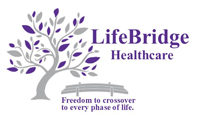Substance Abuse
Substance abuse is the use of any substance to the extent that it causes physical, mental, or emotional damage, either temporary or permanent. Abused substances can be illegal or legal, for example over-the-counter medications or household chemicals. Adolescents who are addicted cannot control their need for alcohol or other drugs, even in the face of extremely negative or dangerous consequences. This lack of control is the result of alcohol or drug induced damage to the brain. The damage, considered to be an illness or disease, in turn causes behavior changes. The substance becomes more important than the basic needs for food, clothing and shelter. As the addiction use intensifies so does negative behavior such as deception, lying, anger and withdrawal from others. The adolescent feels the need to attach himself or herself to other drug users which may lead to more promiscuous behavior while under the influence.
Alcohol and drug use can lead you to do things you would not have done if you thought clearly. It can impair the adolescent’s judgment and cause them to engage in unplanned sex which can result in unplanned pregnancy and sexually transmitted diseases.
The good news is it is never too late for help and a strategy. Professional treatment of substance abuse can start someone on the road to recovery. Combining professional treatment with active participation in after care meetings, one-on-one therapy, family therapy and support groups can significantly improve the adolescents chances of long-term recovery.
Early intervention is most effective at repairing the damage from substance abuse. Get involved in your child’s life. Be interested in their world. Ask casual questions about school and their friends. Talk to them about the dangers of substance abuse. State your position clearly and discuss the consequences of breaking the rules. Be consistent in training and discipline when they do well, praise them and give them lots of encouragement. Schedule regular parent child rituals, like going for ice cream or eating meals together. Go to their events – sports, games, plays and school concerts. Take family trips, movies, go camping or fishing. Get them away from TV and electronics.
Peer Pressure
Gossip can make high School a very tough place to be, no matter how popular you are. Girls, imagine that, after having several beverages at a party decide to go “all the way” with a boy in her class. The two never dated, or for that matter ever had a conversation. If you had been sober enough to think, you never would have done it. When Monday rolls around, you find out that the buzz around school is all about…you. Everyone knows what you did and you no longer feel like the life of the party. All you feel is shame and embarrassment, and what’s worse is your new label party girl.” A teenage boy wanting to get high from drinking alcohol convinces himself that everyone drinks socially. His behavior turns into a downward spiral resulting in bad decision making. The abuser feels righteous indignation and withdraws further from others. The abuser begins to feel shame as loved ones are hurt and pushed away.
